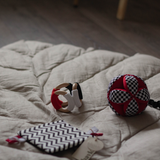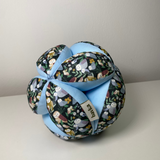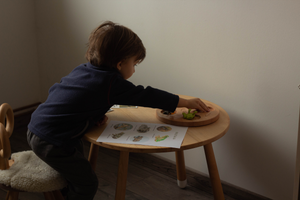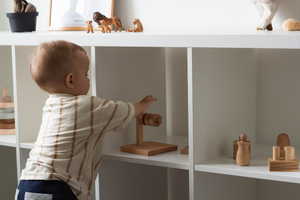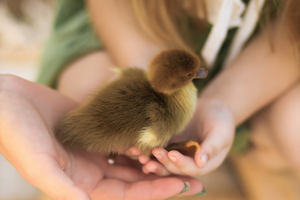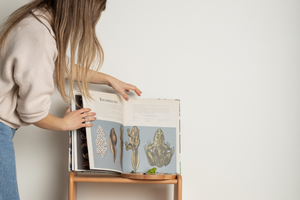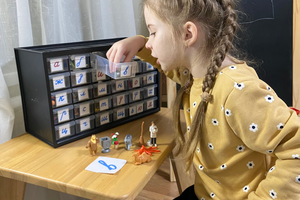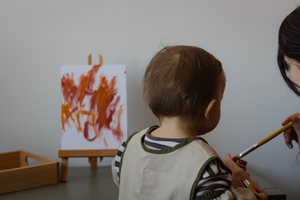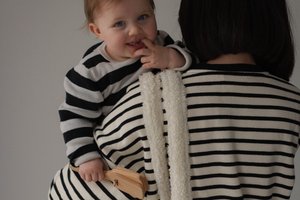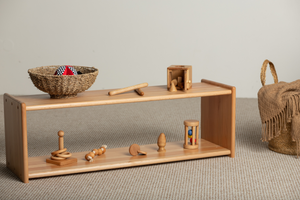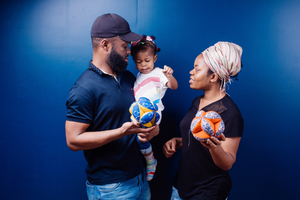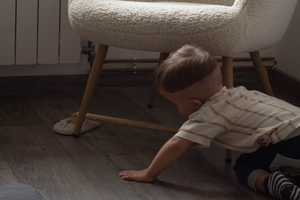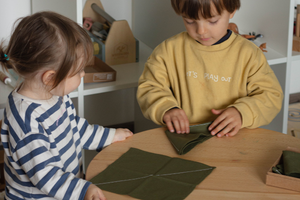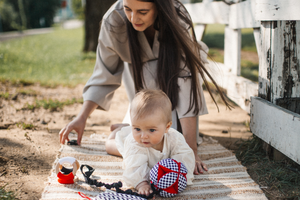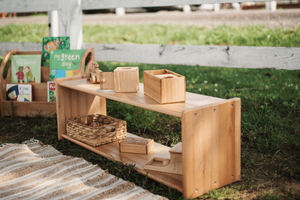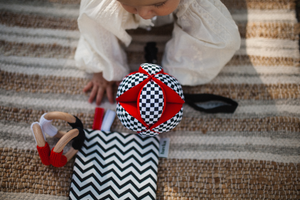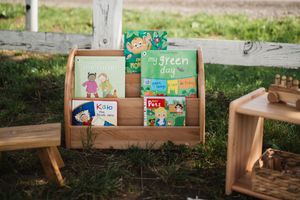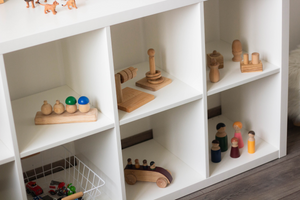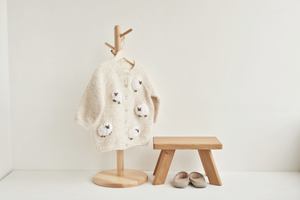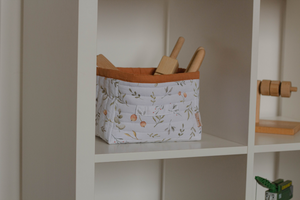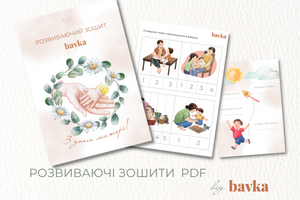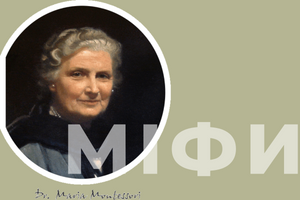The first months after the birth of a child are extremely important for their development. We all know that this crucial period is often referred to as the "fourth trimester," during which it is vital to "deliver" the baby after birth to facilitate their adaptation to the new world. We all know this, but how do we put it into practice?
When I gave birth to my daughter, I was very anxious for her. These anxieties were so strong that they didn't allow me to fully enjoy this early and important stage of my newborn's life. I regret that I lacked the knowledge and peace of mind to properly adapt her. Therefore, it was the cause of difficulties in establishing sleep and feeding routines, which further affected my well-being.
Introduction
The first meeting is as important for the child as research has proven, so much so that even in the deepest corners of a maternity ward, a nurse knows that after birth, it is essential to place the baby on the mother's "skin-to-skin." This fact, by the way, troubles expectant mothers (I remember from my own experience) so much that they worry excessively about whether the nurses will do it. Some of my friends who had difficult births or cesarean sections were very self-conscious about this because they were not able to hold their baby immediately. While this is very important, we must remember that if circumstances do not allow it - the baby's life and health are much more important than bonding. It's great when it's possible, but if not - it's not the end of the world, as establishing this contact afterwards is much more valuable!
What do medical professionals say about bonding?
Researchers believe that being with the child in the first days helps the woman naturally understand its needs and contributes to imprinting.
What is imprinting?
"The theory of imprinting was first proposed in 1935 by the scientist Konrad Lorenz. Imprinting is the laying down in the memory of a newborn of the vital characteristics of individuals, primarily the mother. One of the most important results of imprinting is the formation of a long-term bond with the parents and a stable attachment to them. In simple terms, this means that the person whom the child sees and feels in the first hours of its life remains in its memory forever, and a special, deep psychological connection is established with them."
What to do if it's not possible, when childbirth is difficult, or the baby has to stay in the NICU (Neonatal Intensive Care Unit)?
I found very useful short brochures with instructions for such special cases here.
A very effective method of bonding with prematurely born babies is the Kangaroo care method.
Bonding at home
Bonding is an ongoing process. If you think about it, we will be establishing new and different bonds with our children throughout our lives. But in the first months of life, it is fundamentally necessary! Bonding is also especially important and effective for adoptive parents.
"Bonding" or "connection" is established even through such normal natural processes as:
Feeding. At this moment, the baby feels our body odor, our touches, sees our face. Even if you don't breastfeed, it is important to spend alone time with the baby, sit in a comfortable position, and dedicate enough time to feeding, as it is not just about filling the stomach.
Skin-to-skin contact. This is very important, and if there is an opportunity - do it. Hold the baby against your body. This is important for both mothers and fathers. By the way, did you know that our body temperature can adapt to the one needed for the baby and cool it down in case of a fever or warm it up if it's cold?
Eye contact. Sing songs to the baby, read books, recite poems, talk to them while holding them no further than 30 cm from your face. This will also help the baby remember your voices.
Respond to crying. It is impossible to "spoil" our baby with love and attention!
Play with the baby. Show them contrast toys, rattles holding them in your hands or sitting in front of the baby when they're on their tummy.
Massage. Hygienic routines can greatly help us in establishing the baby's routine and contact.
Co-sleeping. Sleeping nearby will help you establish breastfeeding more easily and get more rest. You can attach a baby crib to your bed and then facilitate separate sleep if it suits you more.
For these daily routines in such a delicate period of life, Topponcino can help you. It's a special pillow that absorbs the scent of home and facilitates the baby's adaptation to new places, as it's easy to carry around. With it, you can comfortably hold the baby during feeding and transfer them to bed if the newborn falls asleep while feeding. It will be a support for other family members and protect them from various textures of clothing, jewelry, etc. It can also serve as a play mat and a massage mat. It's a multifunctional and necessary item.
I'd like to add a few tips for bonding:
-
Forget about the mess. It will be there! Accept it. You can organize processes so that other family members or friends help you clean the house, or better yet, do it for you. I used to send my husband or his mother for a walk with the baby while I cleaned the whole house. Don't do that! Then I didn't have the opportunity to rest, and they brought me the baby, who had already fallen asleep during the walk. As a result, I didn't establish a connection, but I was irritated, tired, and yet the house was clean.
-
Ask for help and accept help! I didn't know how to do this and didn't let anyone near the baby. Did it help me adapt? No. Because I didn't have the opportunity to rest and adapt myself to the new reality. I wanted to live as I did before the baby. And that's impossible, and you feel guilty that nothing works for you. It's a direct path to postpartum depression.
-
Find a specialist if necessary! If you had difficult births, breastfeeding issues, or sleep adjustments - find an expert who can help you go through this experience easier! Because this time will pass. So, we'll survive it somehow. But we can make so many mistakes that we won't be able to correct, and, like me now, we'll remember them for many years.
Share your experience. Were you able to establish that desired connection? Was it easy, or like me, did you have some difficulties?



